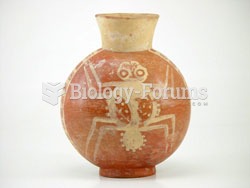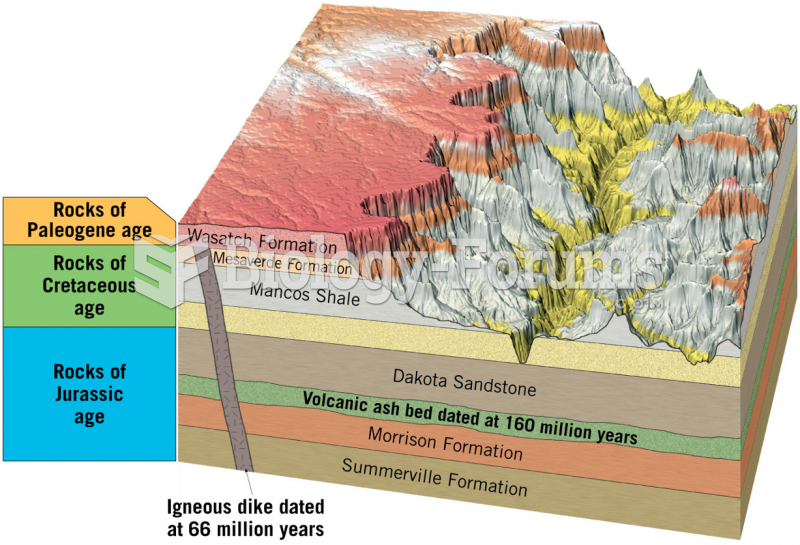|
|
|
Blood is approximately twice as thick as water because of the cells and other components found in it.
Drug abusers experience the following scenario: The pleasure given by their drug (or drugs) of choice is so strong that it is difficult to eradicate even after years of staying away from the substances involved. Certain triggers may cause a drug abuser to relapse. Research shows that long-term drug abuse results in significant changes in brain function that persist long after an individual stops using drugs. It is most important to realize that the same is true of not just illegal substances but alcohol and tobacco as well.
Pubic lice (crabs) are usually spread through sexual contact. You cannot catch them by using a public toilet.
The types of cancer that alpha interferons are used to treat include hairy cell leukemia, melanoma, follicular non-Hodgkin's lymphoma, and AIDS-related Kaposi's sarcoma.
Illicit drug use costs the United States approximately $181 billion every year.
 Changes in boreal forest composition along a chronosequence in Quebec. Dates refer to the year of th
Changes in boreal forest composition along a chronosequence in Quebec. Dates refer to the year of th
 This frame from a home video shows Eric Harris (on the left) and Dylan Klebold (on the right) as ...
This frame from a home video shows Eric Harris (on the left) and Dylan Klebold (on the right) as ...





